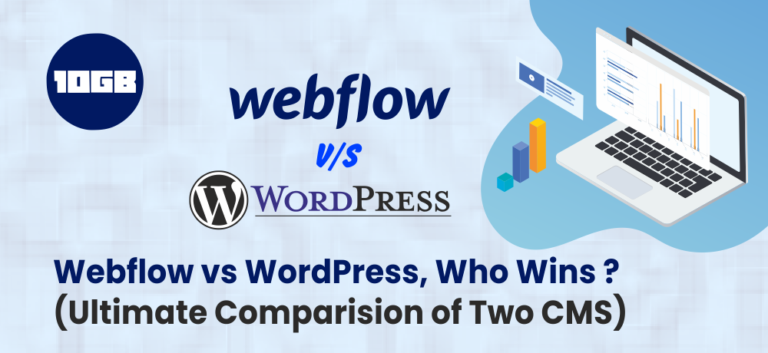

Users can find support in the form of numerous self-help articles, online forums, tutorials and dedicated support when needed. WordPress’s open-source nature and massive community of developers are among the best things about this platform.

As of 2021, more than 455 million out of the over 1.3 billion websites on the internet are built with WordPress. This includes business websites, portfolios, directories and e-commerce stores. Originally created as a blogging platform, WordPress has since evolved into a full-service Content Management System (CMS) for building any type of website. Overview of WordPress and WebFlow WordPress overview See the review sites comparison table below, information as of September 3, 2022. You don’t want to worry about self-hosting in your environment and need something turn-key that’s lightweight to maintain. Use WebFlow when you’re an agency or a lean startup team and just need the job done fast with little development involvement.A true enterprise-capable platform with a massive support community and thousands of templates and plugins available. Use WordPress when you want 100% control over your brand look and feel, knock search engine optimization (SEO) out of the park and be able to self-host in a secure environment your DevOps team is comfortable with.Read on for our in-depth comparison of WordPress vs Webflow to discover how these website builders stack up against each other and when it would make sense to use either of them. However, since WordPress and WebFlow offer slightly different approaches to website creation, it is important to do a comprehensive comparison to determine which one would be a better fit for your business. While WordPress remains a dominant player in the world of visual website builders, hosted website builders such as Webflow are also gaining popularity quickly.īoth of these tools are quite useful for people who want to build various types of websites without development knowledge. This staggering market share includes blogs, SaaS enterprise websites and e-commerce sites. WordPress is the world’s most popular content management system, powering more than 43% of websites on the internet.

The ultimate CMS platform and website builder rivalry.


 0 kommentar(er)
0 kommentar(er)
